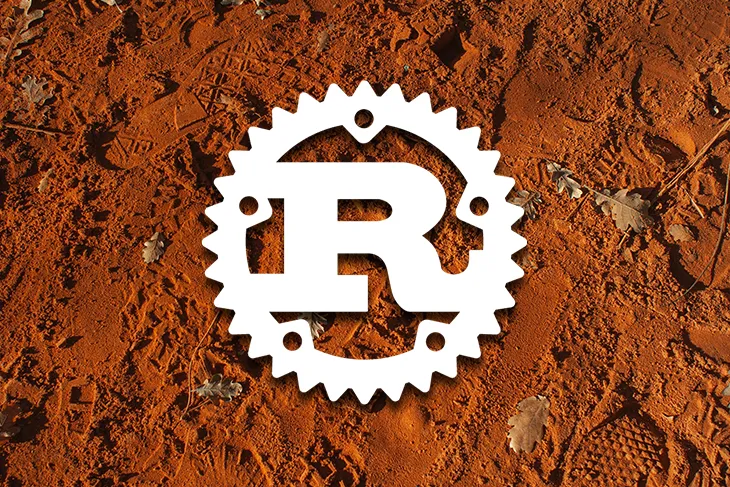In the ever-evolving landscape of software development, the programming language Rust has emerged as a force to be reckoned with. As technology continues to advance, the demand for efficient, secure, and high-performing code has become increasingly crucial. Rust, with its unique blend of performance, safety, and concurrency, has positioned itself as a game-changer in the industry, captivating the attention of developers and industry leaders alike.
The Unique Attributes of Rust

Memory Safety and Ownership Model
At the core of Rust’s design is its innovative memory management system, which sets it apart from traditional programming languages. Rust’s ownership model, a fundamental concept in the language, ensures that memory is managed automatically, without the need for manual memory allocation and deallocation. This approach eliminates the risk of common memory-related errors, such as null pointer dereferences, data races, and undefined behavior, making Rust an exceptionally safe and reliable choice for development.
| Concept | Description |
|---|---|
| Ownership | Each value in Rust has a single owner, and when the owner goes out of scope, the value is automatically dropped. |
| Borrowing | Rust allows you to borrow a reference to a value, rather than taking ownership of it. This helps prevent data races and other concurrency issues. |
| Lifetimes | Rust’s lifetime system ensures that references are always valid, preventing dangling references and other memory-related issues. |
Concurrency and Parallelism
Rust’s concurrency model, based on the concept of ownership and borrowing, allows for safe and efficient concurrent programming. Rust’s standard library provides a set of tools, such as threads, channels, and mutexes, that enable developers to write concurrent and parallel code without the risk of data races or other concurrency-related issues.
Performance and Efficiency
Rust’s design emphasizes performance and efficiency, making it an attractive choice for a wide range of applications, from systems programming to web development and beyond. By leveraging features like zero-cost abstractions, LLVM-based compilation, and low-level control over memory and hardware, Rust can achieve performance on par with or even exceeding that of low-level languages like C and C++, while still providing a high-level programming experience.
Interoperability and Tooling
Rust’s interoperability with other programming languages, particularly C and C++, is another key strength. Rust provides seamless integration with these languages, allowing developers to leverage existing codebases and libraries while taking advantage of Rust’s safety and performance benefits. Additionally, Rust boasts a robust and constantly evolving toolchain, including the Cargo package manager, the Rustfmt code formatter, and the Clippy linter, which help to ensure code quality and developer productivity.
- Rust’s FFI (Foreign Function Interface) allows for calling C functions from Rust, and vice versa.
- The Cargo package manager simplifies dependency management and project organization.
- Rustfmt ensures consistent code formatting across the Rust ecosystem.
- Clippy provides comprehensive linting, helping developers write idiomatic and efficient Rust code.
Language Design and Evolution
Rust’s language design is a testament to the thoughtful approach of its creators. The language is designed to be intuitive, expressive, and easy to learn, making it accessible to developers from diverse backgrounds. Additionally, Rust has a strong emphasis on stability and backward compatibility, ensuring that existing codebases and libraries remain viable as the language evolves.
- Rust’s syntax is influenced by popular languages like C, C++, and Haskell, making it familiar to many developers.
- The Rust compiler provides clear and helpful error messages, aiding in the learning process.
- The Rust community is actively involved in the language’s development, contributing to its ongoing evolution and improvement.
The Adoption of Rust

Increasing Popularity and Community Growth
Rust’s rise in popularity has been nothing short of remarkable. Since its initial release in 2010, the Rust community has grown exponentially, with a thriving ecosystem of libraries, tools, and active contributors. The language’s adoption has been driven by its ability to address the challenges faced by developers in the modern software landscape, as well as the growing recognition of its benefits among industry leaders and the open-source community.
| Year | GitHub Stars |
|---|---|
| 2015 | 8,000 |
| 2018 | 30,000 |
| 2021 | 60,000 |
Widespread Industry Adoption
Rust’s appeal has extended beyond the open-source community, with a growing number of tech giants and industry leaders embracing the language for a wide range of applications. Companies like Mozilla, Dropbox, Cloudflare, and Servo have all adopted Rust in various capacities, showcasing its versatility and suitability for mission-critical systems.
- Mozilla: Rust is used in the Servo browser engine and components of the Firefox web browser.
- Dropbox: Rust is used in the Dropbox desktop client, improving performance and reliability.
- Cloudflare: Rust powers various Cloudflare services, including their edge computing platform.
- Servo: The Servo browser engine, a research project by Mozilla, is written entirely in Rust.
Rust in Systems Programming
One of Rust’s primary areas of focus has been systems programming, where it has gained significant traction. Developers working on low-level software, such as operating systems, device drivers, and embedded systems, have found Rust to be a compelling choice due to its ability to provide fine-grained control over system resources while ensuring memory safety and concurrency.
- The Redox Operating System: Redox is a modern, microkernel-based operating system written entirely in Rust, leveraging Rust’s safety guarantees for systems-level programming.
- The Firecracker MicroVM: Firecracker, a lightweight virtual machine monitor developed by Amazon Web Services, is written in Rust to provide secure and efficient container and function-based computing.
- The Servo Browser Engine: Servo, a research browser engine, is written in Rust, showcasing the language’s suitability for complex, performance-critical applications.
Rust in Web Development
While Rust is primarily known for its strengths in systems programming, it has also made significant inroads into the web development landscape. Frameworks and libraries like Rocket, Actix-web, and Warp have emerged, allowing developers to build high-performance, scalable, and secure web applications using Rust.
- Rocket: A fast and modern web framework for Rust, Rocket provides a declarative, annotation-based approach to web development.
- Actix-web: A powerful and flexible web framework for Rust, Actix-web focuses on performance, concurrency, and ease of use.
- Warp: A high-level, declarative web framework for Rust, Warp emphasizes simplicity and developer productivity.
Rust in the Blockchain and Cryptocurrency Ecosystem
The unique properties of Rust, such as its memory safety and concurrency features, have made it an attractive choice for developers working in the blockchain and cryptocurrency space. Several prominent projects in this domain have adopted Rust, including the Solana blockchain and the Libra/Diem cryptocurrency project.
- Solana: Solana is a high-performance blockchain network built using Rust, leveraging the language’s performance and concurrency capabilities.
- Libra/Diem: The Libra/Diem cryptocurrency project, initially developed by Facebook, has chosen Rust as the primary language for its core components.
The Future of Rust

Continued Language Evolution and Improvements
As Rust continues to gain momentum, the language’s evolution and ongoing improvements remain a key focus. The Rust team, in collaboration with the broader community, is committed to enhancing the language’s features, addressing pain points, and ensuring its long-term viability.
- Stable and Reliable Releases: Rust follows a predictable release schedule, with a new stable version released every six weeks, ensuring a steady stream of improvements and bug fixes.
- Compiler and Toolchain Enhancements: The Rust compiler and its accompanying toolchain, including Cargo and Rustfmt, are constantly being refined to improve developer productivity and code quality.
- Language Feature Additions: New features, such as async/await, pattern matching, and macros, are regularly introduced to expand Rust’s capabilities and expressiveness.
Expanding Ecosystem and Adoption
As Rust’s popularity continues to grow, the ecosystem surrounding the language is also expanding. This includes the development of a wide range of libraries, frameworks, and tools, as well as the ongoing adoption of Rust in various industries and use cases.
- Robust Library Ecosystem: The Rust community has built a comprehensive ecosystem of libraries and crates (packages), covering a diverse range of domains, from web development to machine learning.
- Continued Industry Adoption: Rust’s adoption is expected to continue, with more companies and organizations recognizing the language’s benefits and incorporating it into their technology stacks.
- Emerging Use Cases: Rust’s versatility allows it to be applied in an increasingly broad range of areas, including serverless computing, game development, and the Internet of Things (IoT).
Strengthening the Rust Community
The Rust community has been a driving force behind the language’s success, fostering an environment of collaboration, learning, and mutual support. As Rust continues to grow, the community’s role in shaping the language’s future will become even more crucial.
- Active Community Engagement: The Rust community is known for its active participation in forums, mailing lists, and online discussions, contributing to the language’s evolution and addressing emerging challenges.
- Educational Resources and Initiatives: The community has developed a wealth of educational resources, including books, tutorials, and online courses, to help newcomers and experienced developers alike to learn and master Rust.
- Conferences and Meetups: Rust-focused conferences, such as RustConf and RustFest, as well as local meetups, provide opportunities for the community to gather, share knowledge, and collaborate.
Conclusion
Rust’s rise as a powerful and versatile programming language has been nothing short of remarkable. With its unique blend of performance, safety, and concurrency, Rust has firmly established itself as a game-changer in the software development landscape. From systems programming to web development and beyond, Rust’s adoption and ecosystem continue to grow, driven by its technical merits and a thriving, engaged community.
As Rust’s future unfolds, the language’s evolution, expanding ecosystem, and strengthening community promise even greater possibilities. Developers and organizations looking to tackle the challenges of modern software development would be well-advised to consider Rust as a strategic choice, one that can help them build reliable, efficient, and secure systems that will stand the test of time.

